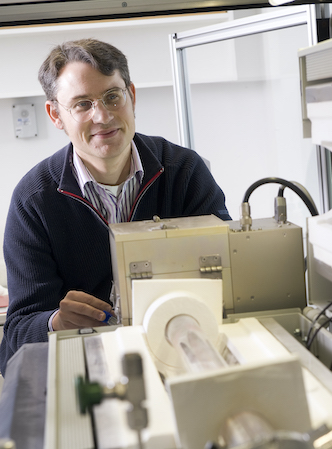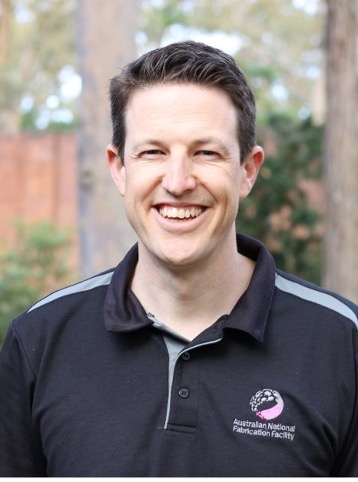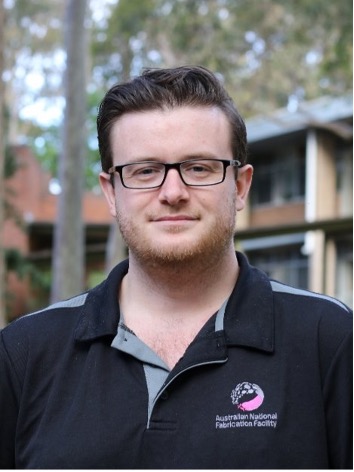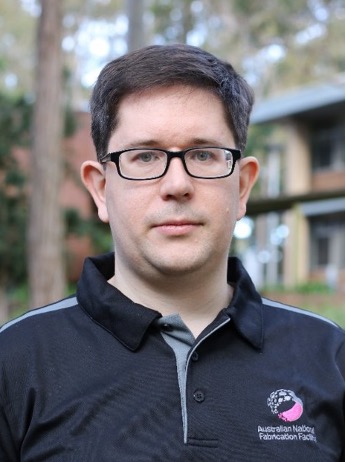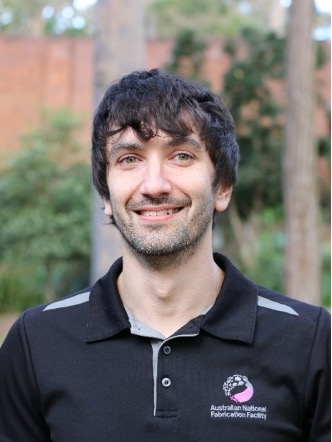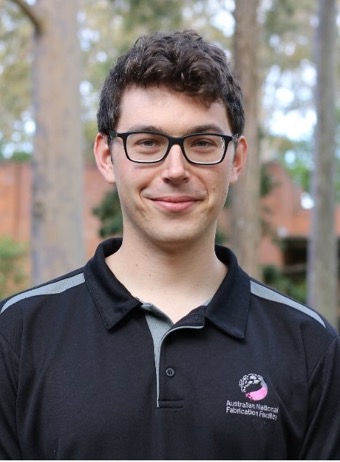
People
Professor Paul Dastoor
Professor Dastoor is the Newcastle Node Director for the ANFF Materials Node, which is responsible for delivering advanced fabrication and characterisation facilities to academic and industrial researchers across Australia and overseas. He is also the Ambassador for the NSW Smart Sensing Network (NSSN), which brings together smart sensing expertise in academia, industry and government to develop a strong, collaborative and innovative network that will deliver economic and social benefits for New South Wales.
Dr Benjamin Vaughan
Ben is the Australian National Fabrication Facility (ANFF) Manager within the Newcastle Hub of the Materials Node. With his team, Dr Vaughan helps researchers and industry develop new technologies using the capabilities available at the Newcastle Hub. Ben completed his undergraduate degree in Microelectronic Engineering in 2000 with honours, and after working in the engineering field for several years developing communication and tracking systems, he completed his PhD in Physics in 2011, focused on the large-scale fabrication of organic solar cells. Ben’s role as facility manager has two primary areas. Firstly, to ensure the suite of tools available at the Newcastle Hub are operational and appropriately supported with maintenance, training and induction of users. This includes liaising with all clients of the Hub to ensure their projects are properly resourced and their outcomes are achieved. Along with this Ben also manages the many projects the Newcastle ANFF team is involved with including large-scale demonstration installations of printed solar panels and the development of biomedical devices.
Dr Adam Fahy
Adam Fahy is a Support Officer for the Australian National Fabrication Facility (ANFF) within the Newcastle Hub of the Materials Node. Adam completed a PhD at the University of Newcastle, focusing on the development of a new type of microscope employing neutral helium atoms to generate an image of a sample surface. He joined the ANFF network in 2015, and is responsible for the operation, maintenance and training for a range of instruments, most notably the x-ray photoelectron spectrometer facilities. Adam also specialises in instrument and device design and manufacture for both industry and research sectors. Projects have ranged from the creation of medical devices, to vacuum system customisation, to the continued development of large area organic photovoltaic arrays.
Dr Nicolas Nicolaidis
After completing his thesis focussed on the optical properties of organic photovoltaics and upscaling their production in 2015 with the Centre for Organic Electronics, he continued to work in the group on industrial projects and continuing to scale up the technology. For the last decade he has worked alongside the ANFF team, but was more formally incorporated into its structure as a Support Officer in 2019. He typically provides support and expertise to equipment that has an optical component such as the UV-vis spectrometer, fluorimeter, AM1.5 solar simulator, and an external quantum efficiency measurement system. Using these instruments services have been provided both in the academic and industrial arenas. Additionally, he has delivered projects involving sensing phenomena related to explosive materials and coupling them to sensors built within the Centre for Organic Electronics. In scaling up the organics photovoltaics he has been significantly involved in mechanical prototyping, electronic design, software design and more recently augmented reality to enable the successful delivery of large projects with international impact and significance.
Dr Matthew Barr
Matthew is a research associate and support officer in the Centre for Organic Electronics (COE), which comprises one half of the Materials Node of the Australian National Fabrication Facility (ANFF). He completed his PhD candidacy at the University of Newcastle, for which he received the Royal Society’s Jak Kelly Prize for Excellence in Postgraduate Physics. His PhD thesis, entitled “Imaging with Atoms: Aspect of Scanning Helium Microscopy” was on the design and development of a new type of microscope utilising neutral helium atoms as the probe particle. Indeed, the helium microscopy team’s work on in this field was showcased in London at the Royal Society’s Summer Science Exhibition in 2019.In addition to the work on neutral helium microscopy, Matthew has been involved extensively in the field of organic electronics – primarily, solar cells printed from electrically conductive plastics. Along with fundamental research on these exciting new materials (using synchrotron techniques such as x-ray microscopy and x-ray spectroscopy) he is also involved in the major upscaling of this technology. He played a major role in all of the large installations of printed solar in Australia, such as the recent solar arbour installation in Lane Cove, Sydney.
Dr Matthew Bergin
Matthew is a research associate in the Centre for Organic Electronics (COE) and a support officer for the Australian National Fabrication Facility (ANFF). He received his M.Sci. degree in Natural Sciences and his PhD in Physics from the University of Cambridge. His PhD research was on instrumentation and contrast mechanisms in scanning helium microscopy, involving the development of a high efficiency electron ionisation mass spectrometer. Since graduating in 2019, he has worked as a research associate in the SMF group at the Cavendish Laboratory, University of Cambridge and worked in the Surface Dynamics group at the Department of Chemistry, Swansea University.
The University of Newcastle acknowledges the traditional custodians of the lands within our footprint areas: Awabakal, Darkinjung, Biripai, Worimi, Wonnarua, and Eora Nations. We also pay respect to the wisdom of our Elders past and present.
